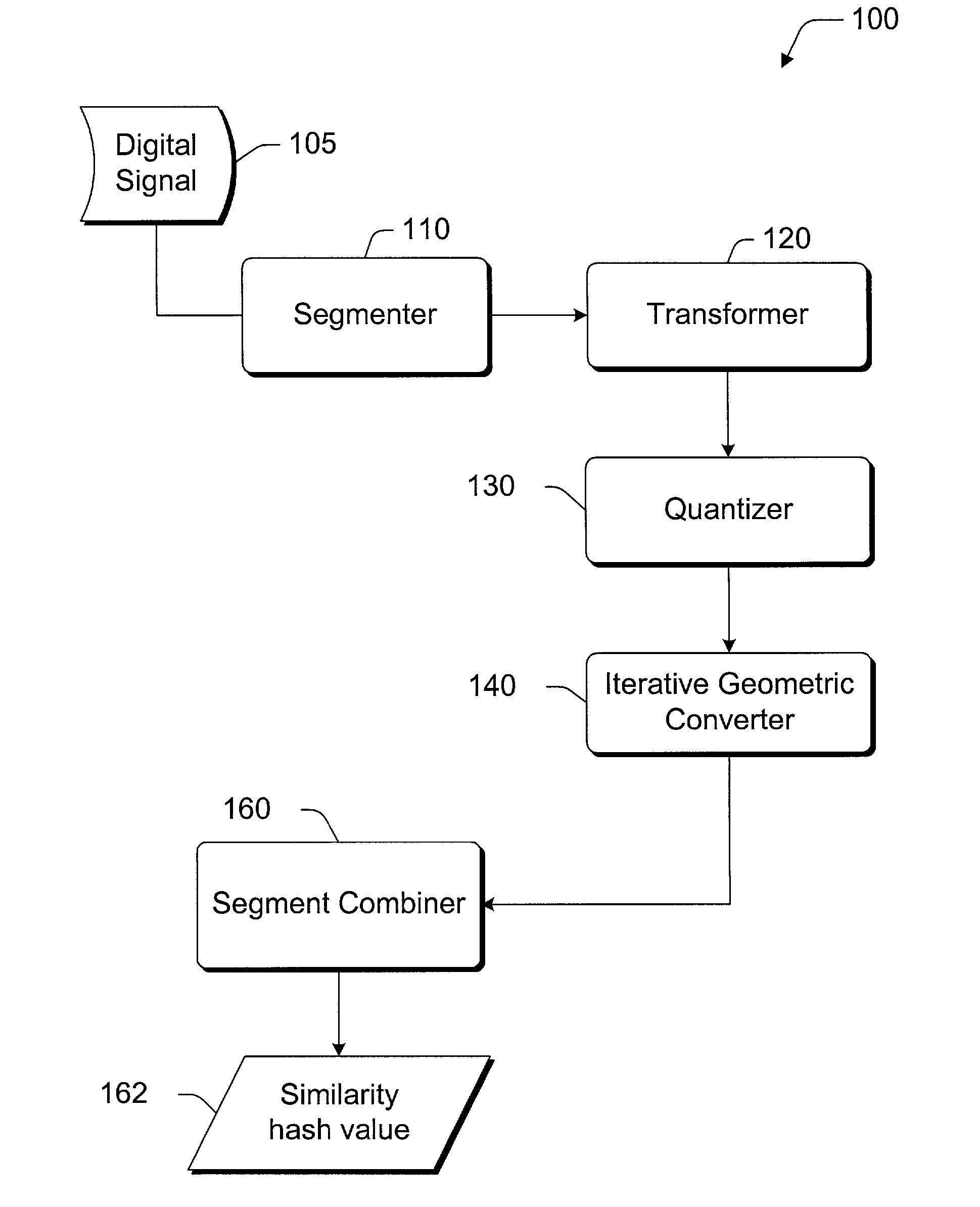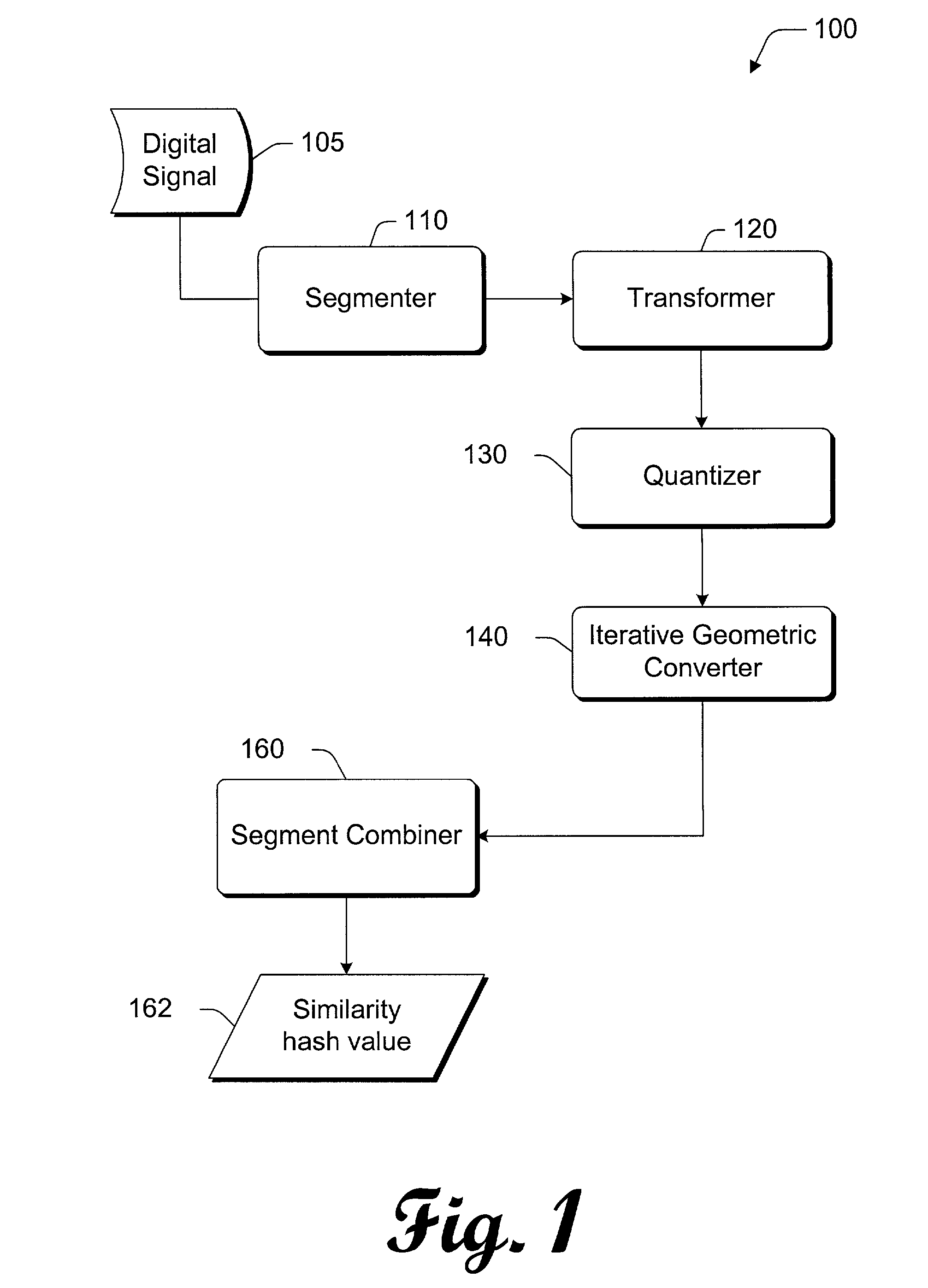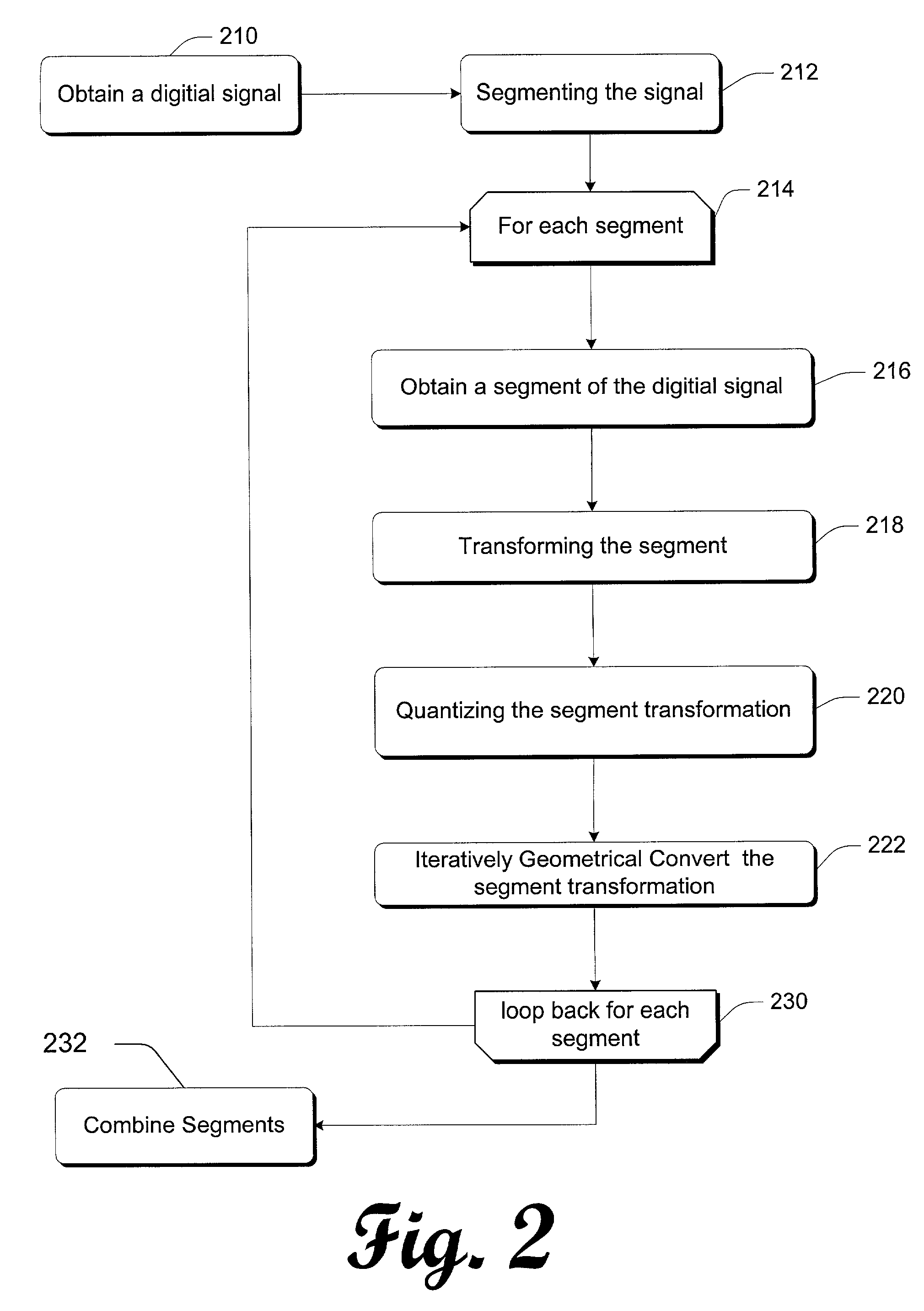Robust recognizer of perceptually similar content
a perceptual similarity and content technology, applied in the field of digital goods perceptual similarity recognition, can solve the problems of reducing the computational resources needed for accessing large databases, affecting the creative community and culture, and affecting the revenue of content-based industries, etc., to achieve the effect of high probability
- Summary
- Abstract
- Description
- Claims
- Application Information
AI Technical Summary
Benefits of technology
Problems solved by technology
Method used
Image
Examples
Embodiment Construction
[0039]In the following description, for purposes of explanation, specific numbers, materials and configurations are set forth in order to provide a thorough understanding of the present invention. However, it will be apparent to one skilled in the art that the present invention may be practiced without the specific exemplary details. In other instances, well-known features are omitted or simplified to clarify the description of the exemplary implementations of present invention, thereby better explain the present invention. Furthermore, for ease of understanding, certain method tasks are delineated as separate tasks; however, these separately delineated tasks should not be construed as necessarily order dependent in their performance.
[0040]The following description sets forth one or more exemplary implementations of a robust recognizer of perceptually similar content that incorporate elements recited in the appended claims. These implementations are described with specificity in ord...
PUM
 Login to View More
Login to View More Abstract
Description
Claims
Application Information
 Login to View More
Login to View More - R&D
- Intellectual Property
- Life Sciences
- Materials
- Tech Scout
- Unparalleled Data Quality
- Higher Quality Content
- 60% Fewer Hallucinations
Browse by: Latest US Patents, China's latest patents, Technical Efficacy Thesaurus, Application Domain, Technology Topic, Popular Technical Reports.
© 2025 PatSnap. All rights reserved.Legal|Privacy policy|Modern Slavery Act Transparency Statement|Sitemap|About US| Contact US: help@patsnap.com



